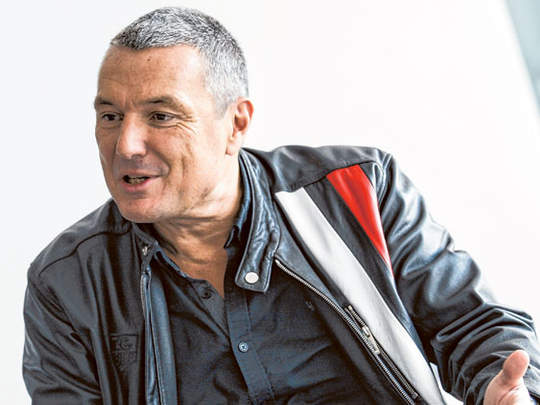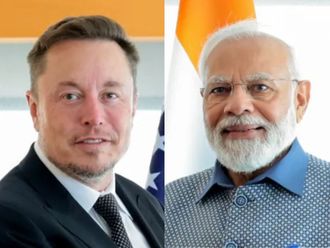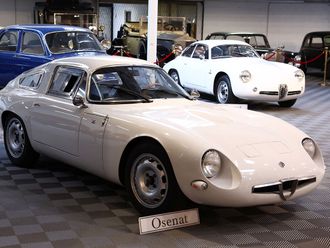
Dubai: Swiss luxury watchmaker TAG Heuer has set itself on “conquest mode” in the Middle East market. The company has plans to add four new boutiques to its existing chain of 15 outlets over the next year. Worldwide company President and CEO Jean-Christophe Babin, the 6th CEO in the company’s 152 years of history, said by May their second boutique will be opening in Abu Dhabi. Tag will open up in Jeddah during the first quarter of next year while their Riyadh outlet is planned for the second quarter. Iraq and Kurdistan, however, will see their first store by either 2013 or 2014. Gulf News caught up with him at Dubai Autodrome, the motorsports center, where TAG has entered into a new partnership as the official timekeeper.
Gulf News: What is the purpose of your visit to Dubai?
Jean-Christophe Babin: The Middle East is an important region for luxury and watchmaking, so it is important for TAG Heuer. What we’re trying to do for the past year is strengthen the market share in the Middle East, especially in Dubai. There are a lot of initiatives to connect with people in Dubai and not just fish for tourists in the Dubai airport, which means being more present in 360 degrees in the country.
Q. What is the size of your investments in the region over the next few years?
A. It’s a ratio we apply to these countries we are in, what I call conquest mode. There are some countries where you’d rather defend your position to try to extract as much profit as possible in mature markets. Then you have conquest market like the Middle East. We believe there’s the strongest potential for watchmaking on one hand and within luxury watchmaking for TAG Heuer, because our market position is not yet what it could be... We are spending 20 percent of our sales [on investments], which is quite substantial. There are about Dh35 million that have been invested in boutiques.
Q. You have opened a boutique in Iran and planning one for Iraq and Kurdistan. How much growth do you expect from these markets, given their economic and political situation?
A. Luxury is driven by demographics and per capita GDP, Iran has the demographics, it has natural resources and one of the highest per capita GDP but not necessarily with the embargo... As the country will evolve and open, very likely it will become with Dubai the largest luxury market in the region so it’s important for a brand to be the first entrant… there’s a reward to your daringness.
Q. What are your company’s financial results for 2012 and what targets have you set for next year?
A. Our growth is between 15 and 20 per cent globally. The Middle East [market] has been within that average. We are targeting again double-digit growth for next year, driven more by retailing. We opened 36 boutiques this year, which is huge in the world of luxury. Next year we are budgeting 30 to 40 boutiques globally, [of which] four are in the Middle East. In terms of growth contribution, Middle East is 6 to 7 percent for additional growth. It shows spending per capita is far above the Western world average; because of this unique liking of luxury we have pushed mono-brand boutiques more than in any other region.
Q. Will Lewis Hamilton continue on the exclusive list of brand ambassadors as he shifted from the McLaren team to Mercedes?
A. We are checking the nature of the contract with Mercedes because some teams are all-inclusive which means the driver has to relinquish all his image rights to the team... others give drivers freedom to have personal sponsors. So we have asked Mercedes what kind of freedoms or none that Lewis has on his contract. If we could we’d gladly continue with Lewis.












